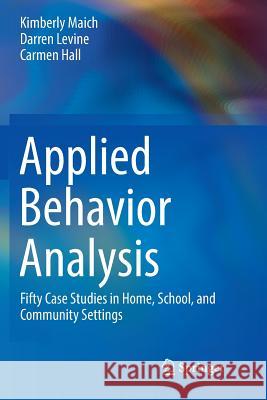Applied Behavior Analysis: Fifty Case Studies in Home, School, and Community Settings » książka
topmenu
Applied Behavior Analysis: Fifty Case Studies in Home, School, and Community Settings
ISBN-13: 9783319831381 / Angielski / Miękka / 2018 / 392 str.
Kategorie:
Kategorie BISAC:
Wydawca:
Springer
Język:
Angielski
ISBN-13:
9783319831381
Rok wydania:
2018
Wydanie:
Softcover Repri
Ilość stron:
392
Waga:
0.57 kg
Wymiary:
23.39 x 15.6 x 2.13
Oprawa:
Miękka
Wolumenów:
01
Dodatkowe informacje:
Wydanie ilustrowane











